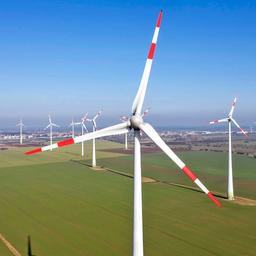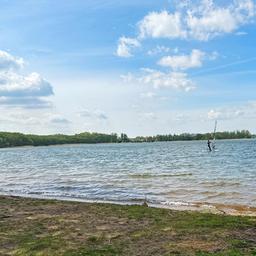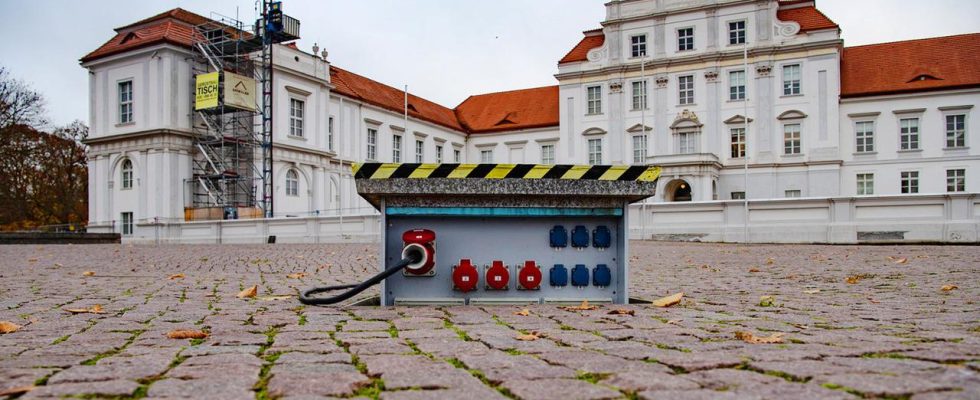No new companies, no large consumers – in the Brandenburg city of Oranienburg, the power grid is completely at capacity. The Federal Network Agency speaks of an isolated case and of “misjudgments during planning”.
- Oranienburg lacks capacity for further connections to the high-voltage network
- Municipal utilities are temporarily not approving registrations for house connections
- The core city and the district of Sachsenhausen are particularly affected
- The Federal Network Agency is examining why the network was not upgraded proactively
- The federal government has now also become involved in the case
Anyone who needs a new power connection in Oranienburg (Oberhavel) will probably have to be patient. The municipal utilities have announced that registrations for house connections can temporarily no longer be approved. The reason for this is a lack of capacity for further connections to the high-voltage network in Oranienburg. A report was also made to the Federal Network Agency and the Oberhavel district.
“The supply options in the city of Oranienburg [sind] “exhausted,” said Peter Grabowsky, managing director of the municipal utility company, according to a statement on Wednesday. According to his own statement, additional capacity was requested at the substation of the upstream high-voltage network operator – the power network in Oranienburg – more than a year ago. However, this could not be provided.
Oranienburg wants to break the 50,000 mark
New daycare centers, new schools, completely new residential areas: Berlin’s suburbs are growing and growing. Oranienburg in Oberhavel also benefits from this. Brandenburg’s fifth largest city wants to break the 50,000 population mark this year. By Karsten Zummackmore
Oranienburg is growing quickly
“In order to keep the electricity network in Oranienburg stable, the municipal utilities can no longer approve new registrations or increases in the performance of house connections,” the statement says. This also applies, for example, to connections for heat pumps and car charging stations, as well as newly planned commercial and industrial areas. The core city and the Sachsenhausen district are particularly affected.
Local companies are already feeling the consequences. “It will be a bitter blow for the business location if it cannot be settled in the near future,” said Christian Streege from the Oberhavel regional center of the Chamber of Industry and Commerce (IHK) to rbb. Many companies want to establish themselves and expand existing companies. “A power shortage like the one that has just been announced is a killing argument for the location,” said Streege.
If you already have an ongoing contract with the municipal utilities, you don’t need to worry. The current needs can be met, and further needs are being discussed with the network operator Edis. “The electricity needs of our growing city have developed enormously, faster than was predicted in the past,” said Mayor Alexander Laesicke (independent), who was involved in the discussions with Edis.
Oranienburg currently has almost 47,700 inhabitants; in 2000 there were just under 30,000 inhabitants and in 2010 just over 40,000. In the coming years the city wants and will grow to 50,000 people. New construction projects such as the “White City” are intended to contribute to this.

Wind farm operators often do not want communities to share in the profits
For over a year, wind farm operators have been able to share their profits with neighboring communities. However, this tax is not mandatory, but voluntary. The wind farm operators are therefore very cautious. By Daniel Friedrichmore
Federal Network Agency checks possible omissions
When asked by rbb|24 on Monday, the Federal Network Agency explained that network operators generally have a general obligation to connect those requesting a connection to their network. They should not be rejected or the connection delayed because of a lack of capacity in the network.
“Network operators must upgrade their network proactively in order to fundamentally prevent problems with a lack of capacity,” says the Federal Network Agency. Why this apparently did not happen in Oranienburg should now be clarified. The Federal Network Agency has asked the municipal utilities for further information. “Therefore, no statement can be made on this matter at this time,” the response states.
In the meantime, the municipal utilities, together with the network operator Edis, are looking for ways to temporarily relieve the load on the network. In addition, the municipal utilities want to consult with the Federal Network Agency for the first time on Tuesday.

“We now have rental prices like those in Berlin”
The municipality of Wandlitz has been attracting tourists from Berlin for decades. But more and more of them are looking for a permanent home between the nature park and the lakes. Locals and newcomers alike are feeling the consequences: Wandlitz is growing. By Margarethe Neubauermore
Federal Government has set up a working group
Meanwhile, the federal government has now also become involved in the case. The Parliamentary State Secretary in the Federal Ministry for Economic Affairs and Climate Protection, Michael Kellner (Greens), told rbb on Tuesday that there was a working group on this.
For Kellner, it is absolutely unacceptable that private households and companies in Oranienburg can no longer be connected to the electricity grid. He doesn’t know of any other cases in Germany. According to Kellner, it is not because there is not enough electricity. What is missing is a connection from the power grid to the relevant customers.
Solutions are now being sought for this. A new substation is being built, but it wouldn’t be ready until 2026, which would be too long for Kellner. He went on to say that the mistake probably lay with the city of Oranienburg. Municipalities are obliged to plan ahead. This does not seem to have been the case with the Oranienburg public utility company.
New substation is being built
Oranienburg began building its own substation last year. This is expected to be completed in 2026 and is intended to “enable significantly increased power consumption from the high-voltage network,” said the municipal utilities. In its budget resolution, the city council made 13.8 million euros in equity available for the new building.
However, new construction projects for private or commercial buildings could still be delayed in the two affected districts in the next two to three years. Burkhard Wilde, member of the municipal utilities supervisory board, was optimistic: “I think we will also find ways to eliminate the capacity bottleneck,” he said, according to the statement.
Broadcast: rbb24 Brandenburg aktuell, April 15, 2024, 7:30 p.m
The comment function was closed on April 16, 2024 at 8:48 a.m. The comments serve to exchange information between users and the editorial team about the topics reported. Among other things, we close the comment function if the number of comments is so large that they can no longer be moderated in a timely manner. We will also close the comment function if the comments no longer relate to the topic or if a large number of comments violate our rules Comment Guidelines injured.

